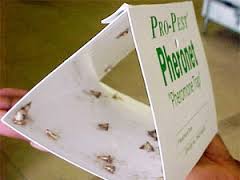Howdy Readers,
Before I embark on a much-needed vacation I wanted to share a few items with you so you will have some answers while I’m away.
The most common question I get is “how do I get a license”. This newsletter article has all the information you need plus a YouTube video with detailed steps.
But here is the basic information: Step 1 – Contact TDA to register online – don’t send information to Austin, as it might get lost, but if you apply online they will get that information within 24 hours. Step 2) sign up and take the 8-hour technician training course – this is good information to help you pass the general exam for the AG or SPCS, purchase the category manuals you need and study, study, and study. Step 3) Once you receive your letter from TDA informing you are now eligible to take your exam from PSI. PSI is a testing site that is open long hours, weekends and are found across the state. You must have the letter from TDA before you can take an exam.
Next question I receive is on how do I keep my IPM program up to date and do I have all the right information? This link will take you to an article on how to keep your program organized.

Using these small sticky cards in classrooms, kitchens and other areas helps alert the coordinator and PMP what insect pests are in the area.
What confuses many IPM coordinators is what does TDA mean by monitoring and thresholds? Monitoring and thresholds are commonly associated with indoor insect pests but can also be used outdoors to decide specific grounds maintenance routines like fire ant baiting and the use of pre-emergent versus post emergent herbicide treatments. For any integrated pest management program to be effective you must know what you and where it lives. Once that has been determined then it’s the use of the scientific knowledge of the pest’s behavior that will lend itself to an action plan that uses metrics to control or prevent this pest. Thresholds are not meant to be rigid they are designed to be guides to help the coordinator, pest management professional and district administrators understand the steps needed to control pests. Check out this article from 2016 on using glue boards to monitor in your IPM program for more details on this topic.
Finally, as your campuses close for the summer check out this article from December 2020 for things to look for as you schedule your deep cleaning program. Remember exclusion is the best way to keep insects, rodents, bats, and birds out of your buildings.

 .
.